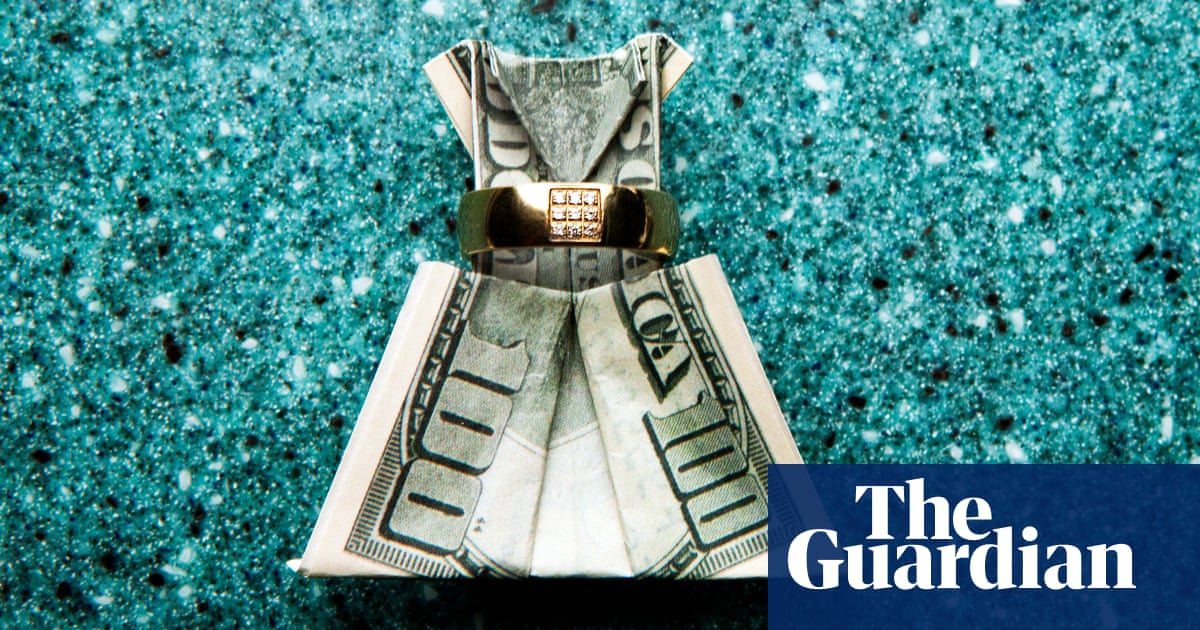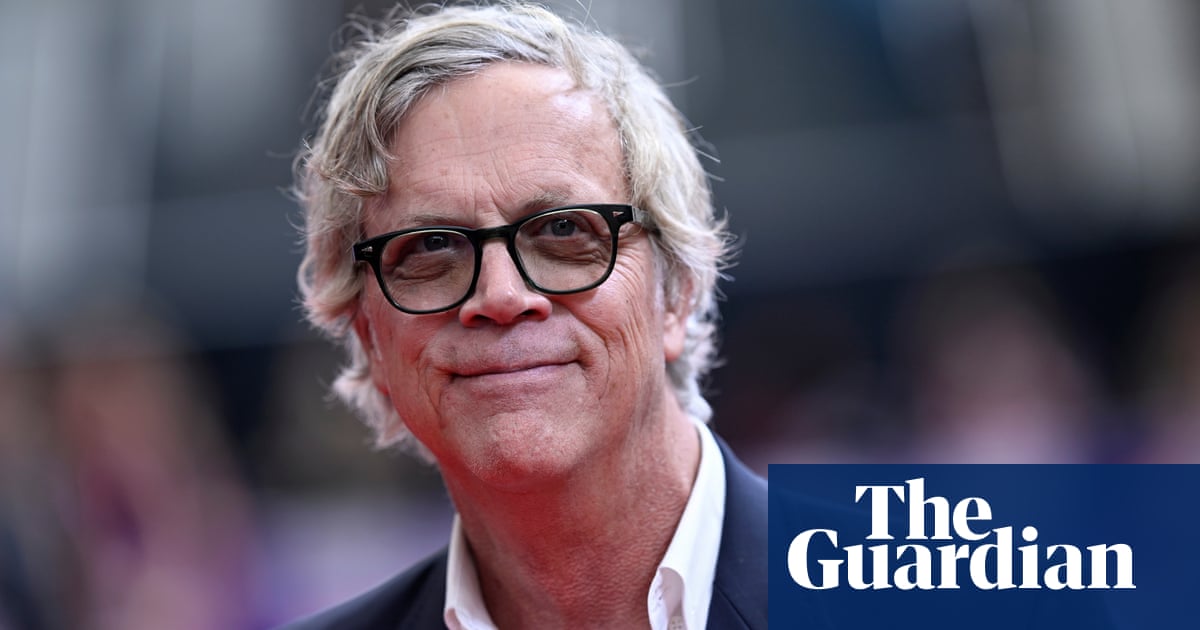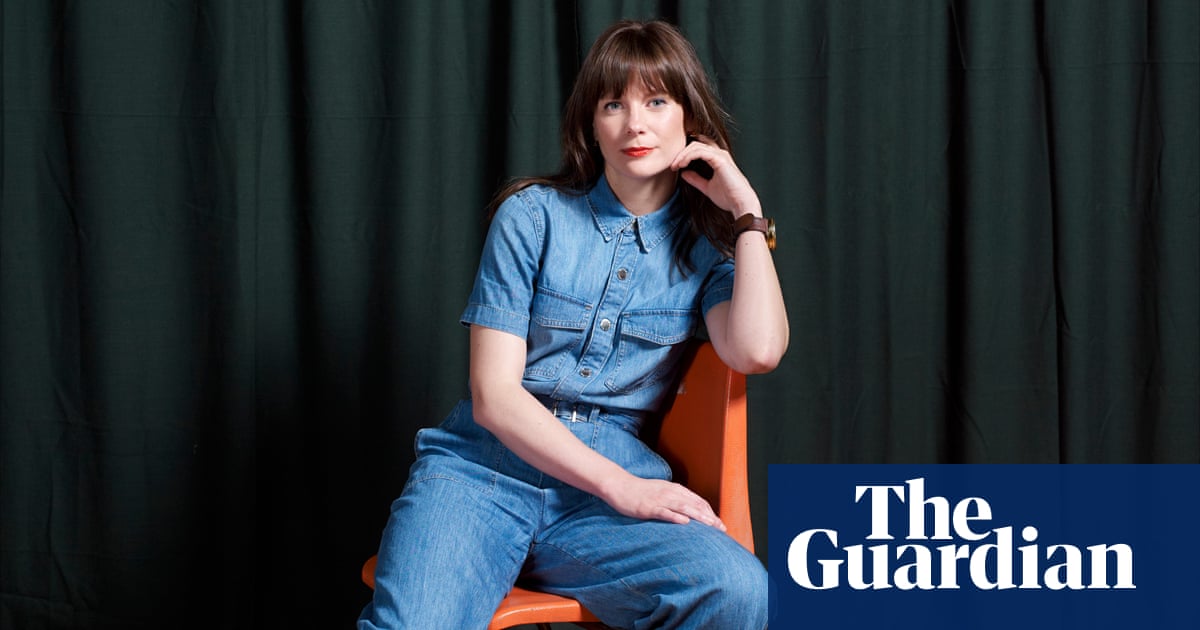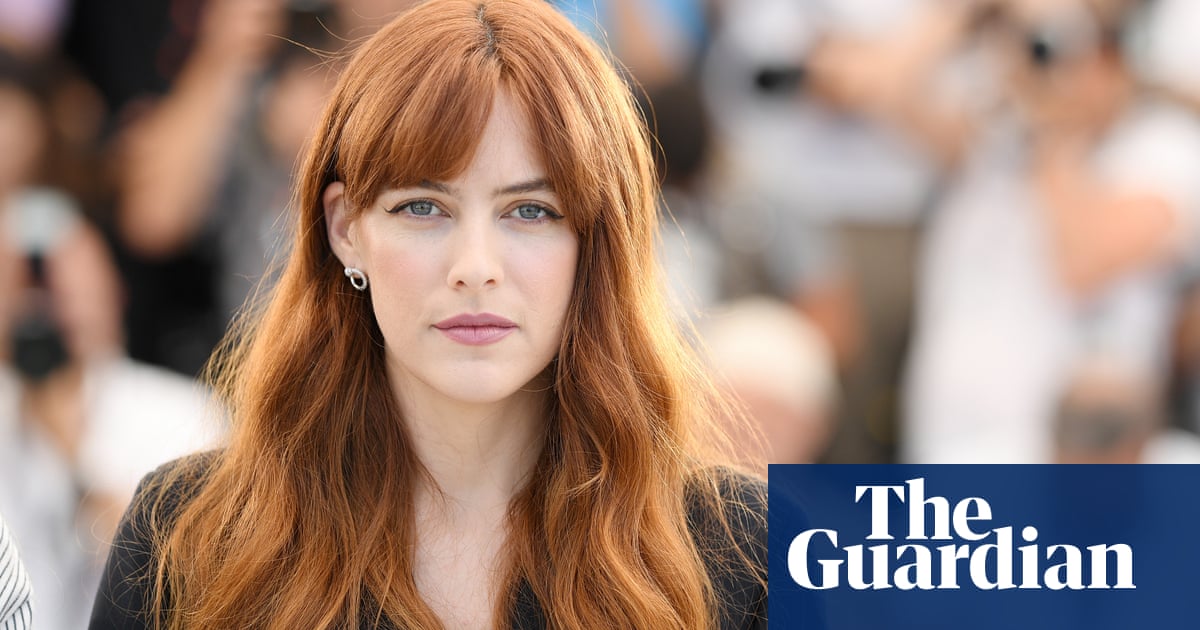
Yesterday Julianne Moore was on the subway in New York, listening discreetly to strangers. “I was sitting there and I heard one woman say, ‘Well, I know that’s exactly what you’d do, I know that’s what you’re like.’ And the other woman said, ‘It’s true, I just don’t like confrontation, I don’t!’” Perhaps it’s distracting, the idea that Moore, not only an Oscar-winning actor, but one whose airy beauty and long red hair (red hair that an early director warned would limit her career, ha) makes her one of the most recognisable people in the world, could pass unnoticed through a carriage of chattering commuters. But please remember – or trust me – that part of Moore’s talent is the ability to transform, to step back from herself. She is a 63-year-old character actor in the body of a movie star. Anyway: “It was so amazing, because it was these two female friends,” Moore goes on, “and one was saying, ‘I know you, I see you’. And the other was affirming that she saw the right thing. It was fascinating. I thought, nobody’s gonna make a movie about these two, but that’s who most of us are. Right?”
In her 40-year career, which has spanned auteur’s art films like the exquisite Safe, to huge blockbusters like The Hunger Games, as well as award-winning dramas like Still Alice (for which, after many nominations, she won her Oscar in 2014) and recent TV work like the audacious Mary & George, Moore has played characters who are defiant and struggling, sometimes deviant, trapped in an often-gorgeous prison of domestic horror.
As a child, she moved 20 times, first across the US and then to Germany with her brother and mother, a psychiatric social worker, following the trajectory of her father’s military career. Whenever she started at a new school, she’d quietly watch how the students danced, how they talked, quickly learning how to fit in, a skill she transferred to acting, first in a soap opera in 1984, and then on film.
On the subway, as in film roles, she’s interested in “reality and complexity” rather than fantasy. “I’ve never met anyone personally who’s been to the moon; I’ve never met a queen,” she explains. “Yet there are lots of movies about queens. Even though I have had incredible privilege and met people who’ve done amazing things, the majority of my experience and relationships are with people living regular lives. Nobody’s a magician, nobody’s a wizard, no one is in outer space. Real people’s lives are rich and extraordinary and wonderful and I like to see them examined – I like to examine them, too.”
We’re meeting to talk about her new film, The Room Next Door. It’s a lush, lovely exploration of mortality and, because it’s by Pedro Almodóvar (his first English-language feature), it includes the art direction of a character’s death, down to the colour of their final lipstick. “There is this elevated visual sense,” Moore says, of Almodóvar’s films. “Women look beautiful, the world looks beautiful.” Even death looks beautiful. “There are filmmakers who say: this world is harsh, so the film’s going to look rough. No one’s going to be lit. It’s going to look real,” she goes on. “And I’m like, does life look like that? Does life look harsh? Is that reality? Pedro sees beauty: in big piles of fruit, wonderful books, the jackets people wear and the lipstick they have on. And it feels like a feast, you know? A celebration, I think, of life.”
Moore plays Ingrid, who is reunited with an old friend, Martha (played by Tilda Swinton), in a hospital room. The room overlooks a Manhattan cityscape on which, so enchanting is Martha’s receding life, pink snow falls. She decides to rent a house somewhere beautiful to take a euthanasia pill, and asks Ingrid to be there, in the room next door. It’s a tender, strange film, a duet about friendship, time and the end. Its beauty reads as defiance. In response to an old lover, a lecturer on the climate crisis, Ingrid says, “You can’t go around telling people there’s no hope. There are a lot of ways to live inside a tragedy.” The line has come back to me since at odd times; pouring milk, scrolling news.
“When Pedro’s films begin, the canvas feels kind of vast and personal to him,” Moore says. “By the time you finishthe film, it feels very small and personal to you.” At the Venice premiere, the crowd applauded for 17 minutes, almost a sixth of the running time of the film. The ovation became its own news story. “That feeling of reciprocity was wonderful,” Almodóvar tells me. “I felt the audience had understood what we wanted to tell them.” But “the ovation was so long that, after exchanging hugs and kisses with Julianne, Tilda and my brother, we didn’t know what else to do, except smile and put our hands on our hearts”.
Almodóvar wanted Moore for the role because he knew she could appear “terrified, friendly, compassionate, angry, understanding, stony, slightly eccentric, tender, empathetic but without going too far, fearful and daring at the same time”, he says. After sending Swinton the script, Almodóvar asked her who she thought should play Ingrid. Swinton emails me, remembering: “My heart was pounding in case he said a different name. Our emails crossed: they both said JULIE. Hallelujah!” Swinton and Moore had circled each other’s orbits for years, but, she says, “coming together in this way was a particular blessing. It gave us the chance to catch up on each other’s entire lives – from morning to night – and in between set-ups, Pedro was always marvelling: ‘You two are always talking talking talking!’ What grace to have such a way of becoming friends,” she adds, “which we now most assuredly are.”
After the premiere, people approached Moore to discuss first the film and then themselves. Almodóvar’s work, she sighs, “makes people want to reveal themselves more because they feel so seen by the experience. What he’s done with this film is really encapsulate what it means to witness someone,” Moore says, “to accompany them during a passage of mortality. For me and Tilda, of course, it brings all of that into relief. It brings it back to how you can experience your life, I think, in a more complete way, in a more present way.” Sometimes the process was painful, she admits. They were shooting in Madrid, away from her husband (film director Bart Freundlich, who she met while shooting his film The Myth of Fingerprints in 1996) and their two adult children, and the subject matter was, she says with a slow nod, “heavy”. But at the same time, “sort of wonderful, because you go, ‘I need to be awake. I need to be alive to the idea of mortality all the time’.”
It’s fairly early in the morning to be talking about death, but Almodóvar’s film, she agrees, requires it. “His movies are like a dream,” Moore smiles, “They’re not quite real, but their themes are so real – it’s personal, it’s political. It’s all of the stuff of life.” On the political, I ask, how does she deal with the themes, like death and the climate emergency, he explores? She briefly hoots. For a second I worry I should have asked, perhaps, about her skincare routine, or favourite colour. “No, but sometimes I feel challenged, because I’m just a human being, called upon to make big proclamations about the end of the world!” Still, I wait.
“You try to be a good person. You know, you try to be alive. You try to do what you can do in your own sphere and reach as far as you can.” She loves the Nick Hornby book, How To Be Good, because, “at the end, the only conclusion he reaches is that: you can’t. Instead, you find solace in art and in time and in relationships. People love narrative – we all love a beginning, a middle and an end. But we don’t have that in life until we’re dead. And then we don’t even know what the story is, because we’re not there to see the end. So, in fact, we have this expectation that life is going to be like this …” a) leading to b), leading to c), etc, “and that we can contain it. We keep telling these stories so we have that kind of solace. But I feel as if life is more like this…” She mimes a long, wobbly line. “It spreads out horizontally and we don’t know where it’s going. And so it’s … a challenge!”
A number of directors Moore has worked with have talked about her magical way with silence, the things she says when she’s saying nothing. “One of the best things about Julianne, aside from an extraordinary talent for both comedy and drama, is a physique that allows her to play any kind of character with the same intensity,” Almodóvar tells me. “And she knows how to listen. She also has a fantastic deep voice,” he adds, thoughtfully. “She should sing.” Moore explains, slowly – on screen: “You’re always looking for what feels human. One of the things about acting that’s always challenging is that you have to do all of this work, then also be ready to abandon it so that it actually happens to you. So I think part of being silent is letting something occur to you while you’re actually on camera.”
Are these sorts of lessons in acting also useful for real life? “They really are, because so often in life we have an expectation about how something’s going to happen. Then, just when I think I’m open to any possibility, something comes and surprises me. In acting, you want to try to be skinless. Because you want to have those things happen to you. It’s about getting those barriers down. In life, it’s very hard to be that way, because you want to protect yourself. But I think, ultimately, you’re more in touch with who you are and what you want and how you communicate if you can be that way.” Raw and skinless. “It’s just hard!”
On stage or film, “there’s this tremendous freedom. I don’t know why some of us like doing that. And other people find their freedom in other places. But I can metabolise a lot of feelings and ideas while I’m doing it.”
Where else does she find freedom? “In relationships. Friendship. I find a lot of freedom just walking around, too. I like to read, I love design, I love ceramics.” At my request, she scrabbles around to find a bowl she’s made. It’s about two palms wide, gold and glinting in the light. She made a whole collection cast in bronze and sold them to benefit a gun-safety organisation. “I said to the bronze artist,” Moore laughs, “‘Oh my God, it looks so amazing!’ She said, ‘The secret is, everything looks good in bronze!’” She loves making ceramics, she says, holding the bowl, as, “evidence of time”.
When her children were little, 20 years ago, they’d visit her on set for lunch. “Being a parent, there’s a tremendous amount of compartmentalisation that occurs. But I liked the fact I had other responsibilities, other things to tend to.” Her son was three when she was filming The Hours with Nicole Kidman and Meryl Streep, “and he was with me the entire time. One of my biggest concerns was getting home, because he wouldn’t go to sleep until I was in the bed with him. My character was very depressed, and oh, it was all very complicated. He didn’t like the fact my character was pregnant – he would knock on my belly, try to take it off.” She was 37 when she had her first child but, “people have been asking me about age since I was 28. Often I’ll be interviewed and they’ll say, ‘I’m sorry to ask this question, my editors said I had to…’ Because people think women want to read about it.” What do you think? “I think no one wants to be defined by how old they are.Children don’t like being told, ‘Well, you’re this age, therefore X.’ And when you are 30, you don’t want to be told, ‘You’re 30, you should start worrying,’ and when you’re 60, you don’t want people telling you, ‘Don’t you think we should be wrapping this up now?’ It feels like a very tight way to define someone when, in fact, everybody is just having experiences of… being alive.” She takes a gentle, exasperated breath.
“We all have a life cycle. We feel as if we’re always in the middle and we don’t know the end. Sometimes the age questions are really about business, you know, but then the deeper question,” she leans in, stagily, “and here we’re getting back to the dark part of this interview… the deeper question is about mortality.” She remembers something Gloria Steinem said: if women don’t have equality, they will continue to be valued only for their youth and beauty. “But if you do have autonomy, if you do have agency, then where you are in your life doesn’t really matter – you want to be able to experience all of it and know all of it has value.”
We meander back to the women on the subway, the idea that each claimed to know who they were. “Well my God, we all want that, don’t we! The thing about identity, though, is that it’s always shifting.” Does she ever discover more about who she is through the characters she plays? “Yeah, that’s why I do it! It gives you a space to examine your feelings. I think when people talk about feeling cut off from themselves, it can be painful. And I think that for a lot of us doing this,” by this she means acting, “you do feel like there is a place where I can kind of mess around with my feelings.”
She felt it in the scenes with Swinton as Martha in hospital, a recognition, and an understanding that while you might not be able to save someone, you can help simply by being there. She repeats the line, with weight: “There are lots of ways to live inside a tragedy,” whether a hospital room, a war, or a broken planet. “Life is hard, death is hard, sorrow is hard, grief, all of these things that we live with. You can’t say, ‘Oh, forget it. I withdraw.’ You have to be present with it. You live with it.” She nods. “This is what life is. We have children and we go to the movies and we talk like this. We persist!”
We’re staring at each other now, a sort of mutual terror on the table between us, and I find myself apologising for asking questions about the horrors of being alive on such a fine morning and she chuckles merrily while pulling the band from her ponytail. “No I’m sorry,” she says. But, there’s always more than one thing happening at the same time, she reminds me – there’s always the tragedy, “the brutality”, as well as the beauty, and the quotidian reality of a woman’s working day. “Because, this entire time…” talking about, for instance, how to live when death is real, she smiles, “I’ve also been deep conditioning my hair.”












